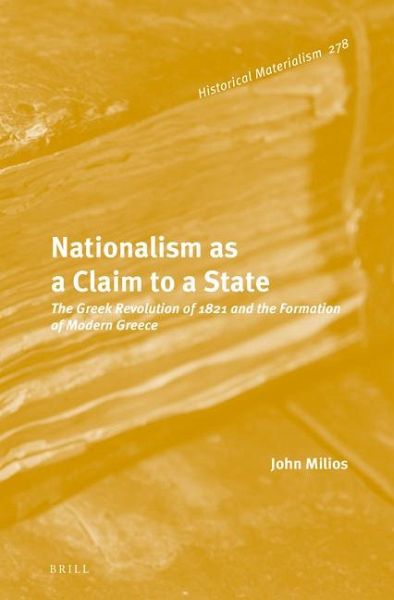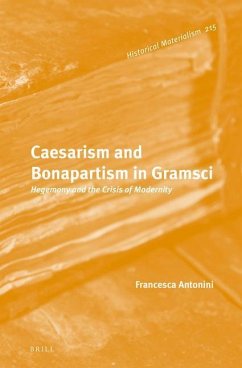
Nationalism as a Claim to a State
The Greek Revolution of 1821 and the Formation of Modern Greece
Versandkostenfrei!
Versandfertig in über 4 Wochen
139,99 €
inkl. MwSt.
Weitere Ausgaben:

PAYBACK Punkte
70 °P sammeln!
The Greek Revolution of 1821 exemplarily illustrates how nationalism, as a politicisation of the masses and a novel form of subsuming populations under capitalist rule, creates the nation as a demand for political rights, and yet for national 'purity' and for the expansion of state borders.












